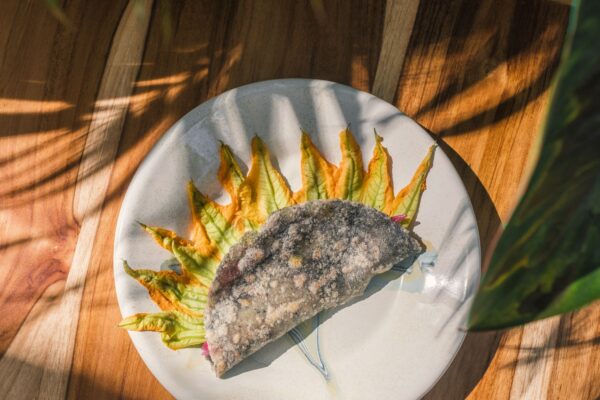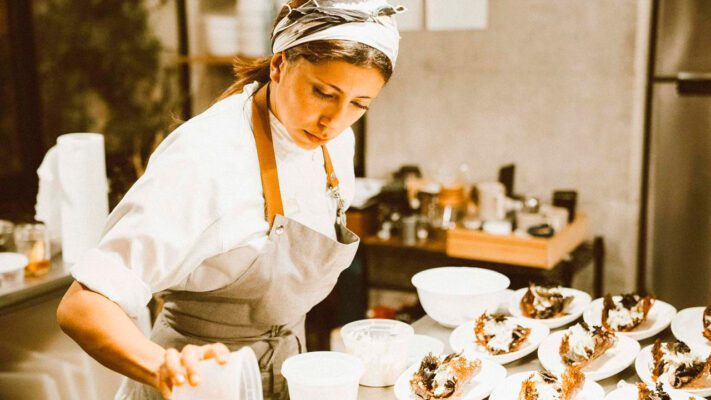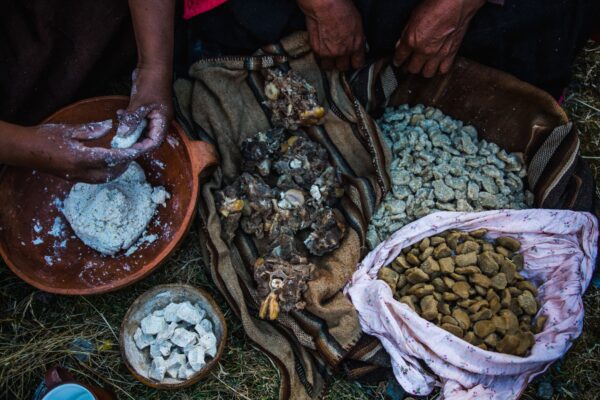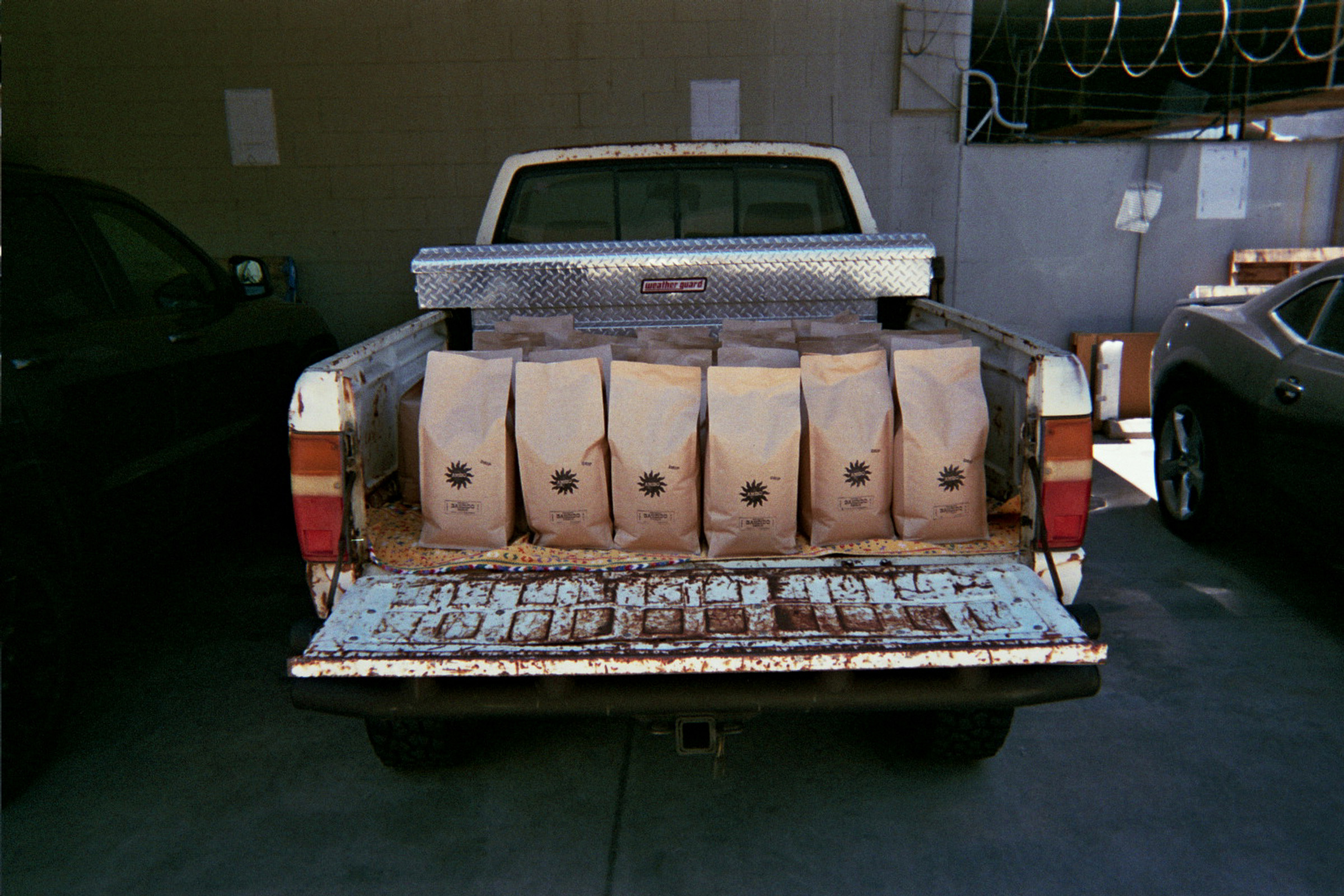
COFFEE WITH
ALEJANDRO BALZARETTI: “COFFEE IS A BUSINESS BUILT ON RELATIONSHIPS AND A TOOL THAT CONNECTS YOU WITH OTHERS”
By Elena Wright
Name: Alejandro Balzaretti
Profession: Founder Amigo Coffee Roasters
Nationality: El Salvador
Zodiac sign: Libra
Instagram: @amigoroasters
ELENA WRIGHT (EW): Tell us a little about your connection to coffee and how you first stepped into the industry.
ALEJANDRO: In one way or another, coffee has always been present in my life. Both my mother and father’s sides of the family cultivated coffee in El Salvador going back three or four generations. I grew up around coffee, but was never directly involved in the industry until five years ago when I moved to Los Angeles.
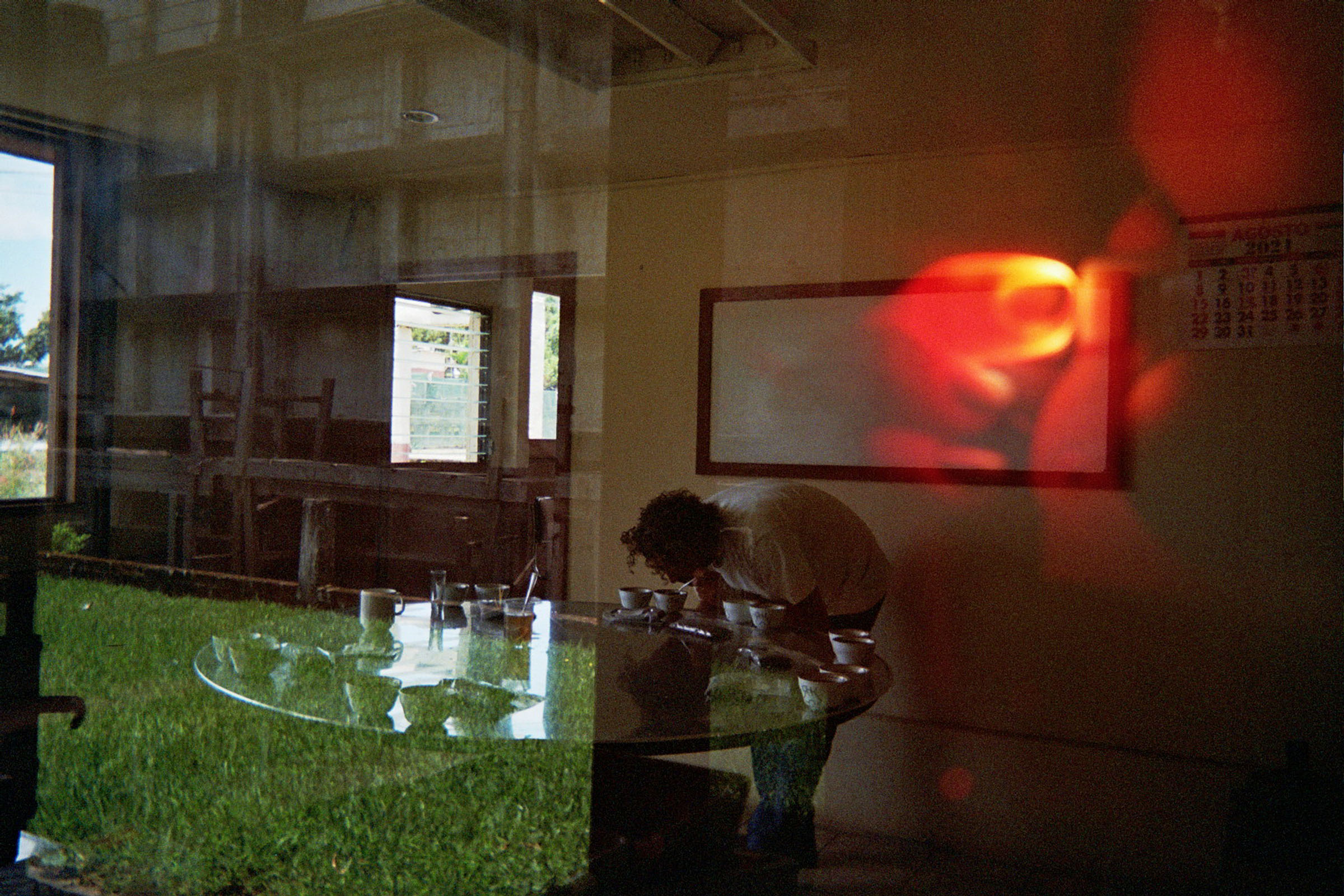
EW: Why did you decide to get involved in the industry and what is Amigo’s essence?
ALEJANDRO: Amigo is born from all the relationships I established working in the service industry in Los Angeles for over five years. When I first got here, I had no idea I would end up working in coffee, but what I did know is that my next move should somehow connect me to El Salvador: to the culture, my family and friends. Amigo became that bridge that allowed me to live in the United States, but still be permanently linked to my country.
The Amigo essence is made up of every person we come in contact with: From the farm workers to our customers. Ultimately, coffee is a business built on relationships and a tool that connects you with others and leads to new opportunities. This project is a platform that allows me to continually learn and connect with others, while creating experiences that have a positive impact.
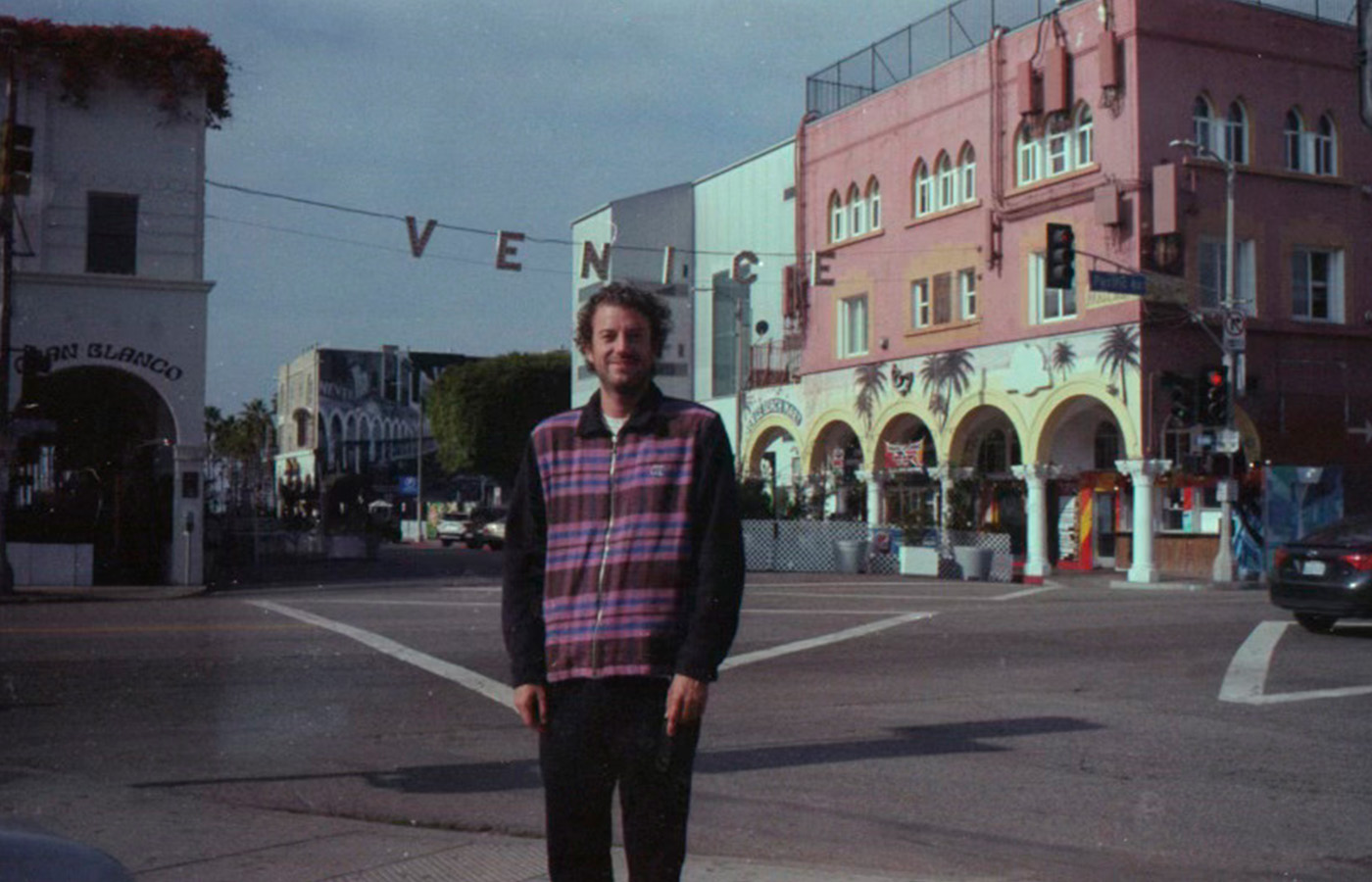
EW: I recently had the opportunity to visit you in Venice Beach and was able to see how, despite being a relatively new brand, Amigo is very much ingrained in the community. What attracted you to Venice, and why do you think it’s the ideal spot for Amigo?
ALEJANDRO: I had never even visited Venice before moving here—I hadn’t even been to Los Angeles. My father pushed me to pursue opportunities outside of the country, and I had a feeling I wanted to be in California. A good friend of mine was living here at the time, and so I just ended up here.
Amigo set up roots here in the most organic and unplanned way, but if I had to pick a city to start all over again, I’d pick Venice again. Los Angeles is a place where people come to make it happen. It’s a city brimming with creativity and everyone wants to do their own thing. It’s located next to the beach, has a casual vibe to it, a great art scene and a strong sense of community. Everyone here knows, supports and roots for one another. Community and art are two very influential pillars for Amigo.
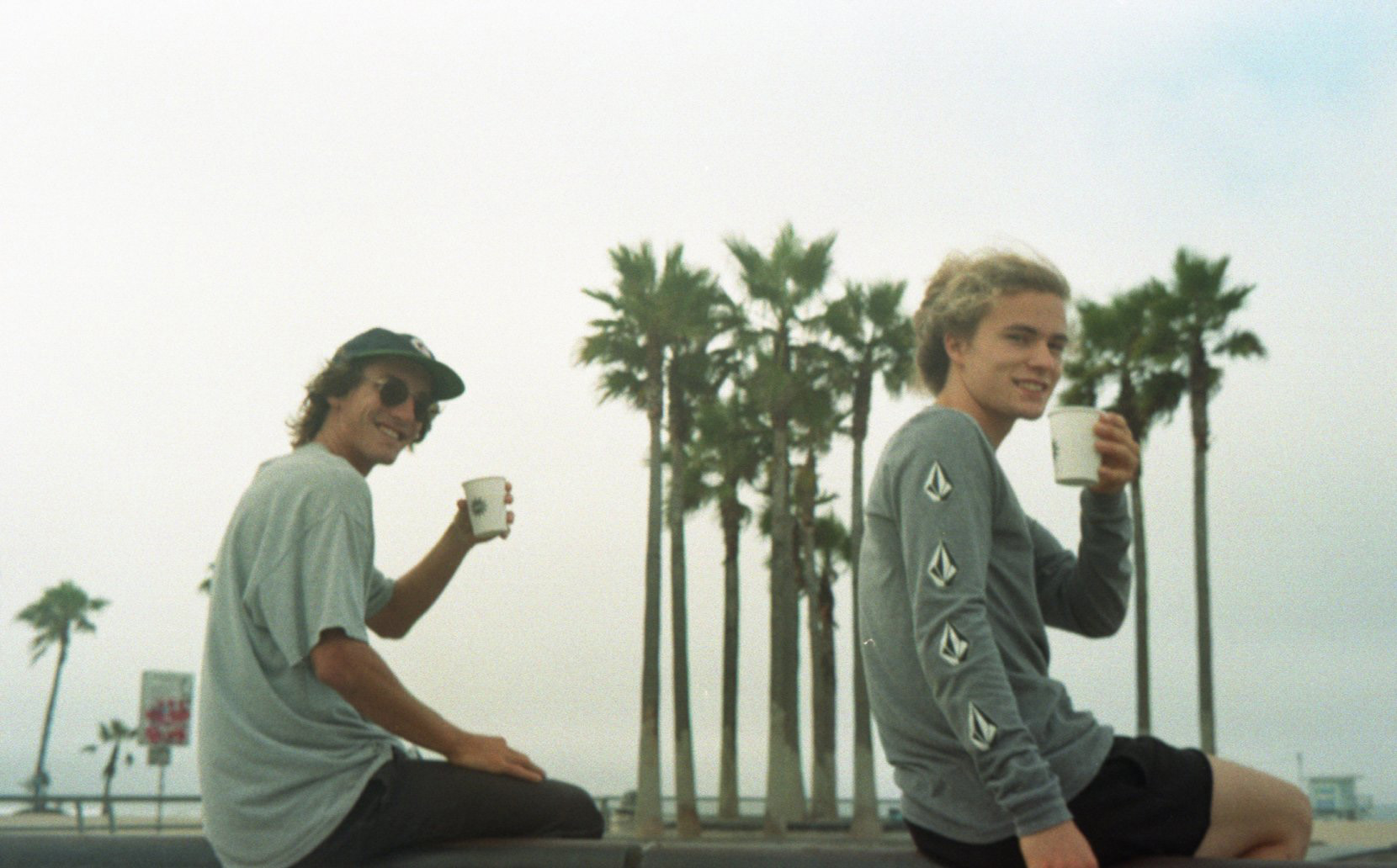
EW: There’s a big Salvadoran community in Los Angeles. Do you think this has influenced your brand?
ALEJANDRO: Yes, the community is big and very proud of their heritage. Being far away from my country has definitely influenced my brand. Besides selling coffee from my country, Amigo is a continuous expression of my Salvadoran identity. The term hermano lejano (Salvadorans living abroad) is a very relatable one for me. Not just because I’m away from my country, but because of the meaning it holds: the community you’re representing, and that includes friends, family and all of those unique traditions. I think that after family, one’s most important and profound connection is with their country.
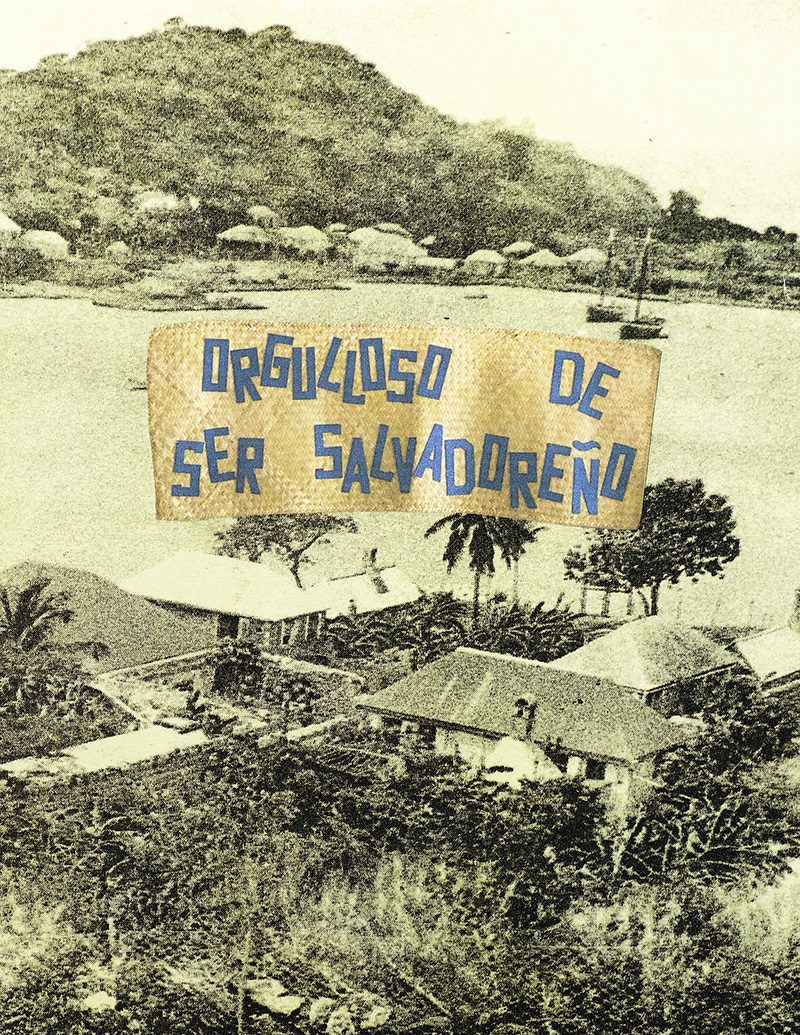
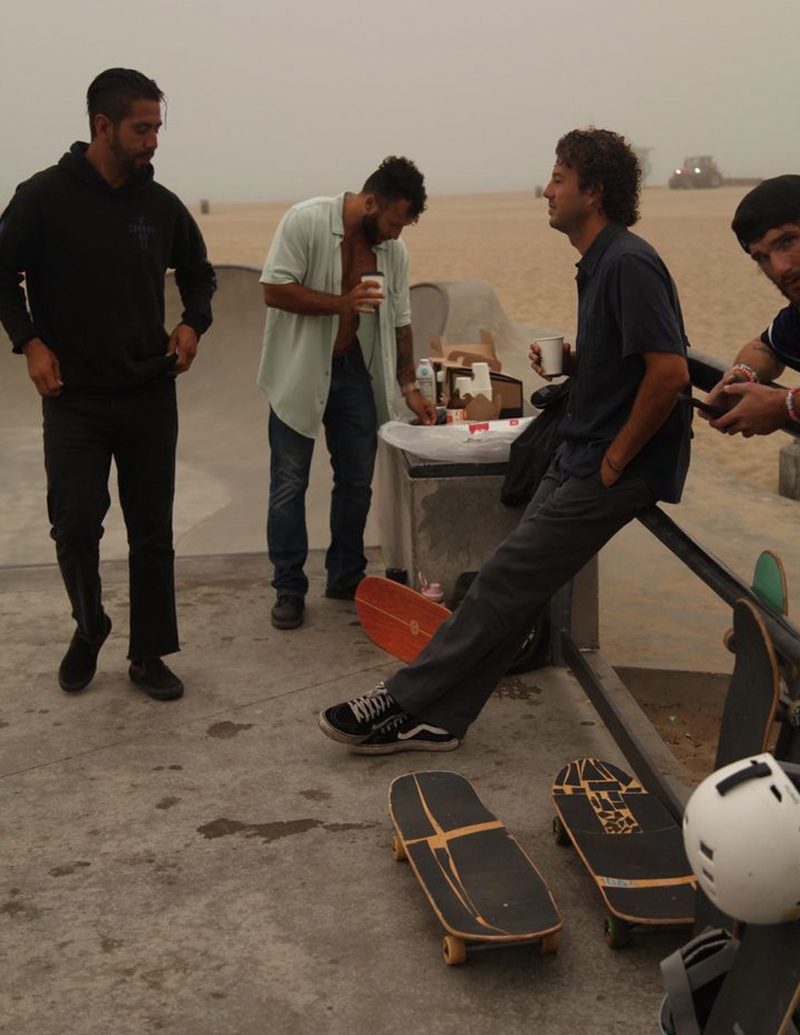
EW: Are you in contact with a lot of Salvadorans there?
ALEJANDRO: Yes. In every bar and restaurant I worked in prior to Amigo, I worked amongst Salvadorans. People always seem to appreciate Salvadorans at the workplace and think highly of them, as do I.
EW: Why do you think that is?
ALEJANDRO: Because Salvadorans are always ready to work. They also have an innate sense of hospitality. Oftentimes, when people think of L.A., they think solely of movie stars, but you can’t forget that this is a community where people come and try their luck on various fronts, and I’ve witnessed Salvadorans hustling and truly giving it their all.
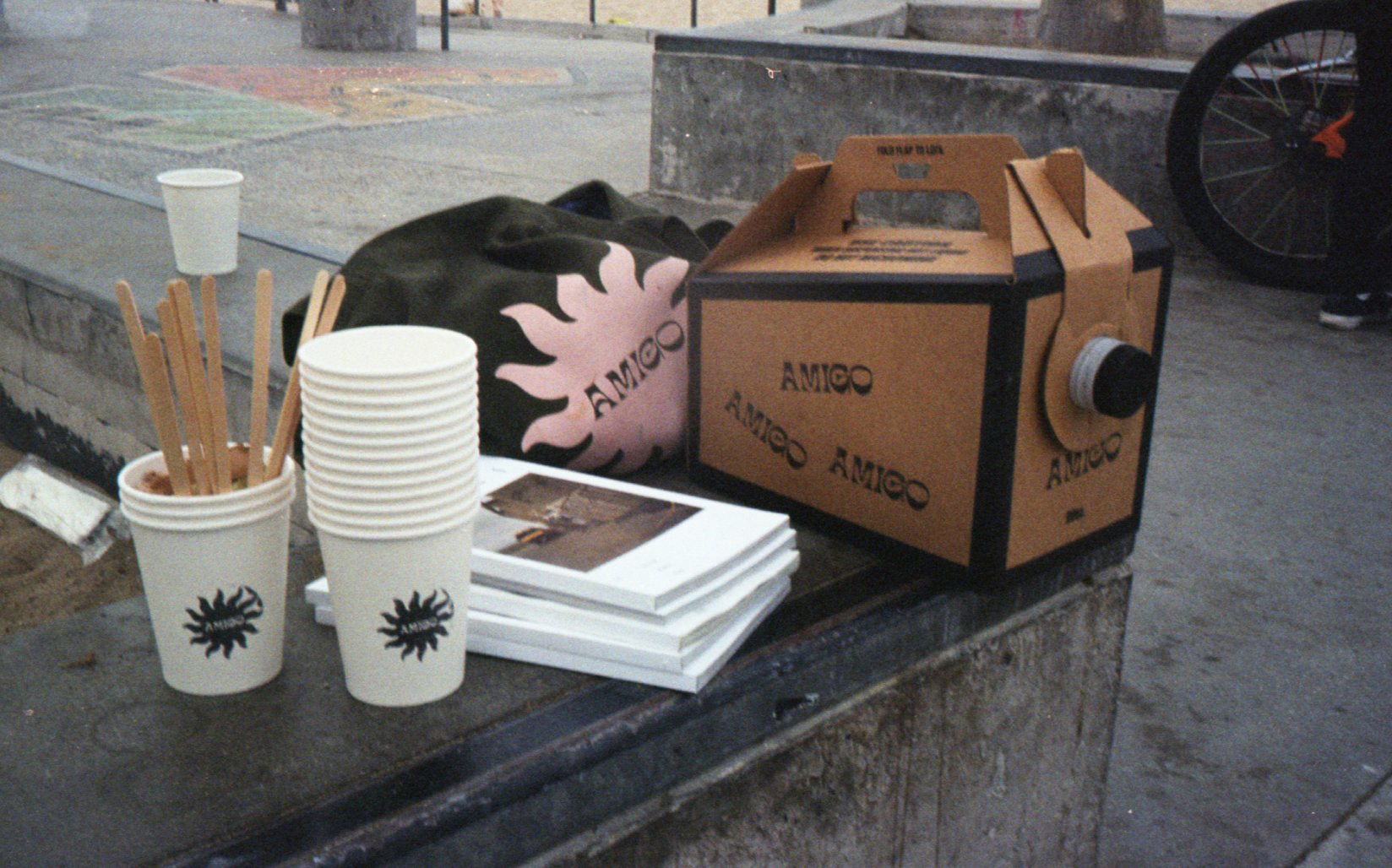
EW: Besides being fans of your coffee, we also love your branding. Tell us a little bit about the design and what the creative process behind it was like.
ALEJANDRO: From the outside in, coffee can oftentimes come across as quite complicated. It has complexities stemming from its cultivation and processing, different kinds of roasts and various preparation methods—there’s a science behind all this which can be overwhelming and intimidating. Many times we think that good coffee is plain complicated, or worse, sometimes we come across someone who is so specific about how coffee should be grown and prepared, and if it’s not done a certain way, they will argue it’s not good coffee.
We believe our value lies in quality, something we take care of from start to finish: From the farms we work with and the entire chain that follows. Having said this, we think the best coffee is however our client wants to enjoy it. Amigo is meant to be an everyday coffee, and when we think of the brand, we always have that very present: we are friendly and approachable.
When I first founded the brand, I had no interest in being the cool coffee brand, but rather, to create a fun concept that reflected the color and spirit of Latin America: something like what you see out of a bus window going through a boisterous market. We worked on the creative direction with Visual Utopia Group, a creative studio in Argentina owned by Ines Gurovich. They help us create, produce and edit content. We also work with different artists in Los Angeles and El Salvador.
The brand is a creative outlet. I’m constantly asking myself how I can share the things that are unique to El Salvador in the United States in the best, most authentic way. It comes as no surprise that sometimes these things are what I miss the most as well.
EW: For example?
ALEJANDRO: For example music, cumbia specifically. I appreciated this so much more when I left the country. Also, the talented artisans. I always try to visit artisan workshops in different towns when I’m there—I didn’t really do that when I was living there.
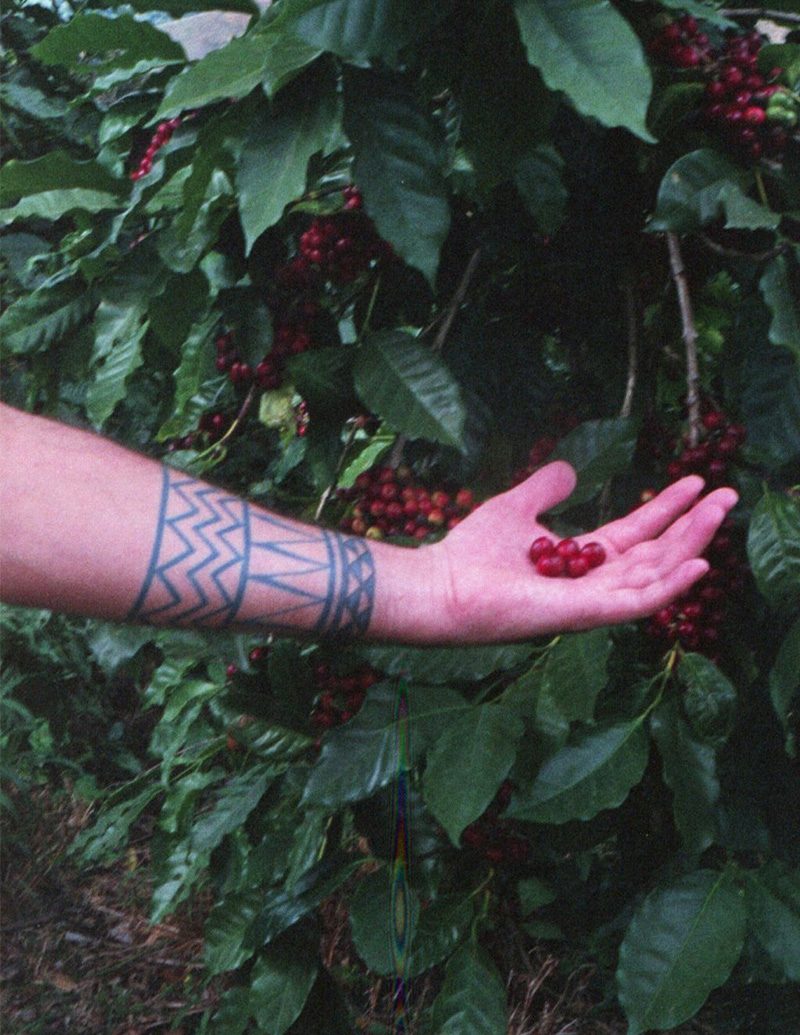
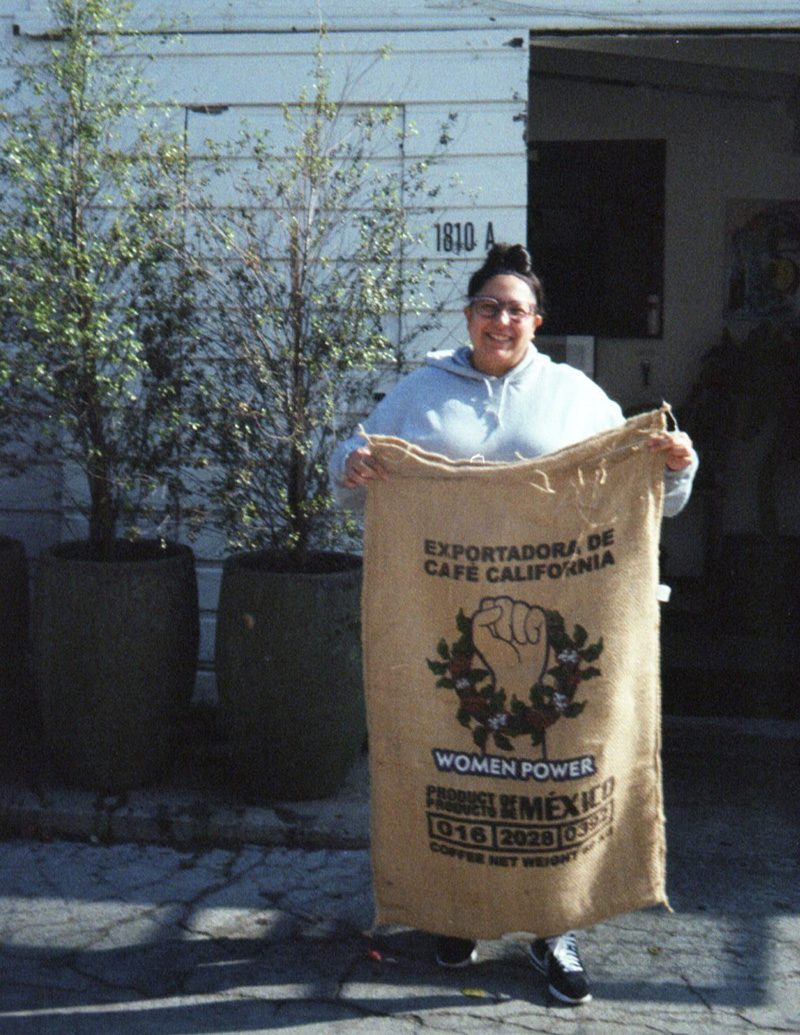
EW: One of your brand pillars is to support female coffee harvesters in Central America. Why is this important to you and how are you following up?
ALEJANDRO: All the coffees we manage have their own sustainability program and two of those directly support women growers. One is from Huehuetenango in Guatemala, from Aldea Q’Om and cultivated by 19 women. The other is Jefa, by 14 women in Veracruz, Mexico. Both are amazing, high-quality coffees that are superior to those in neighboring farms. These women are paid a premium rate through two programs run by export companies.
The coffees are excellent—I can’t say why exactly, but I think women have a better touch in general. Women are more patient and detail-oriented, and this really comes across in the final product.
It’s important to communicate achievements and Amigo serves as a platform for our growers to do so. In this particular case, it’s women, but in the future it might be someone else. There’s great value in sharing these unique and moving stories through Amigo.
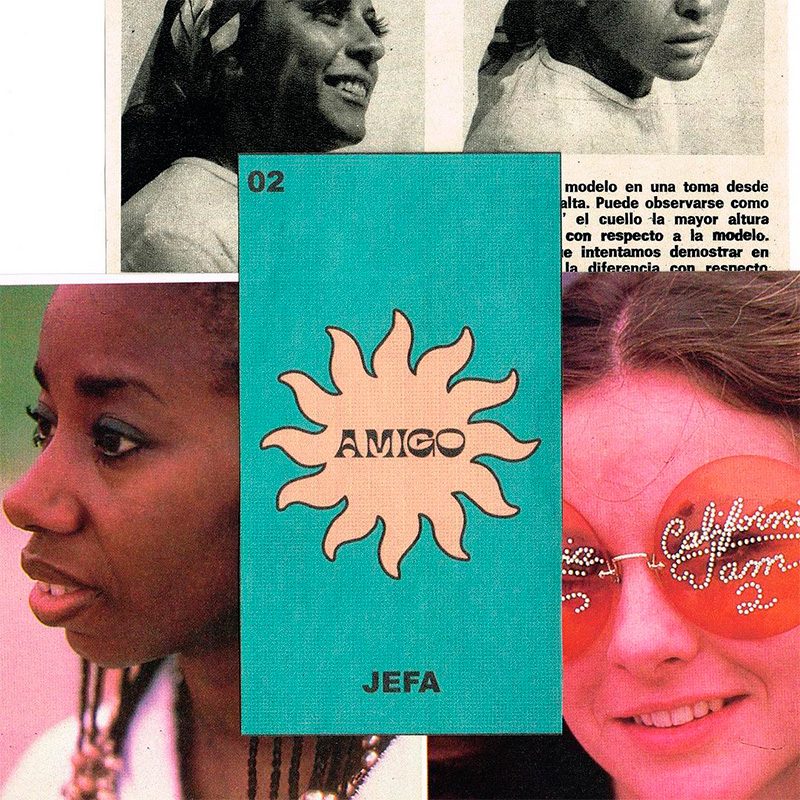
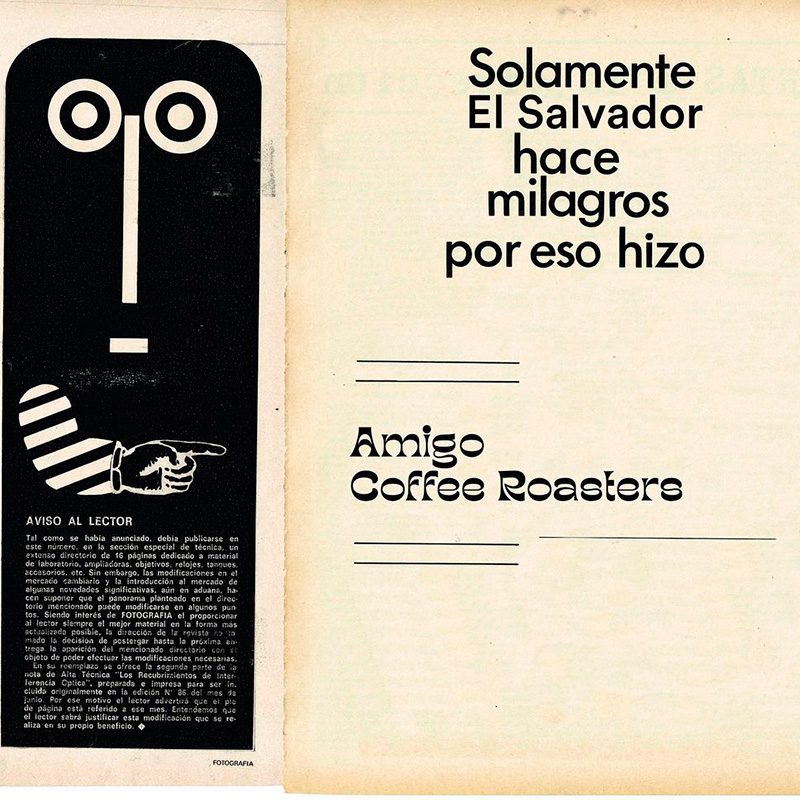
EW: Where do you see your brand in 10 years?
ALEJANDRO: I see us continually partnering with like-minded brands and artists and creating impact together.
EW: What do you think is unique and special about El Salvador?
ALEJANDRO: There is a mystical element that never ceases to surprise. When I take someone to El Salvador for the first time, they always feel like they’ve discovered something new and leave the country with a really great feeling. Although I lived there for the majority of my life, I always leave with the notion that there’s still so much for me to discover.
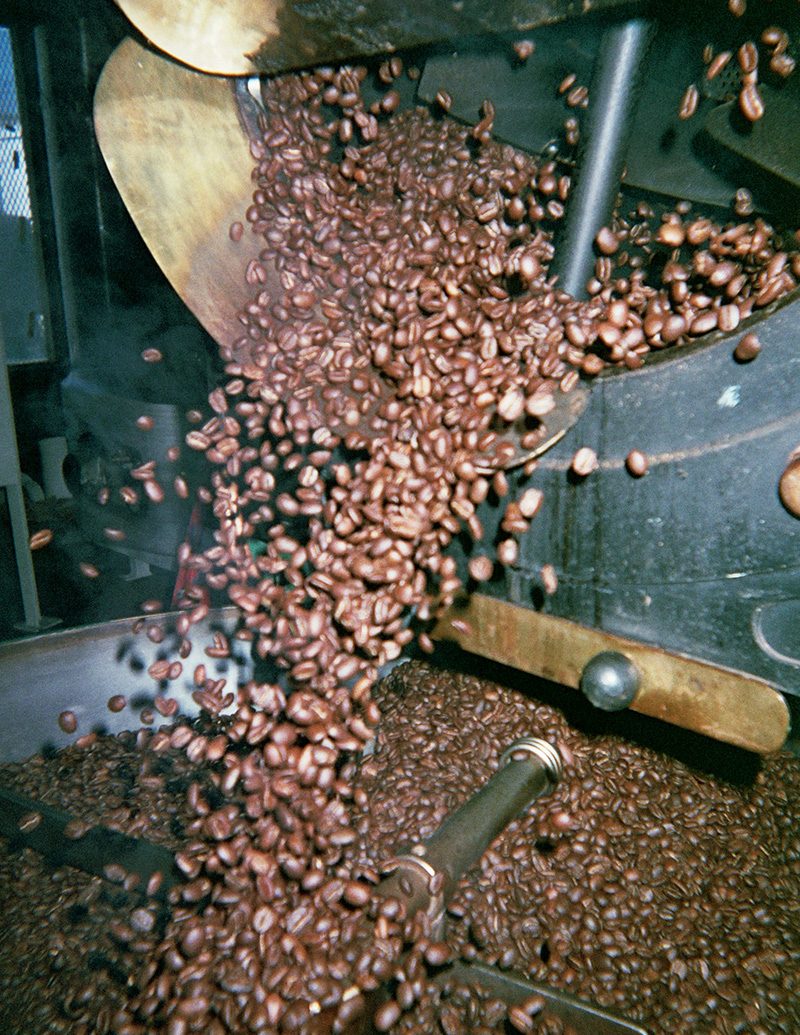
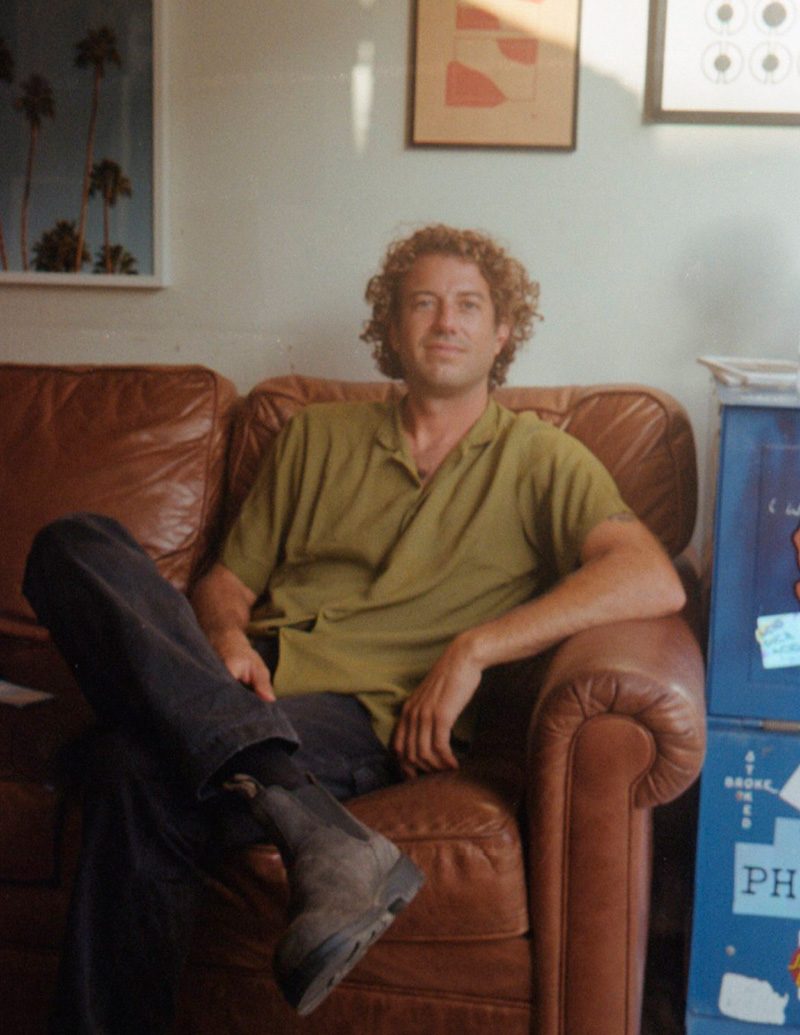
EW: When you get to El Salvador, what’s the first thing you do?
ALEJANDRO: Since I usually take the red eye after work, I go directly for a Salvadoran breakfast at home as soon as I land. It includes beans, eggs, tortilla, cheese, bread, cream, plantains, avocado, and If I’m lucky, bacon. Also, peppers from the garden. After this, I almost always have something a friend asked me to bring back for them and they’re usually at the beach, so I head down there. If I can surf, I surf, but if not, I just have coffee with friends. I also visit the farm. This almost never changes.
Images courtesy of Amigo Roasters.

